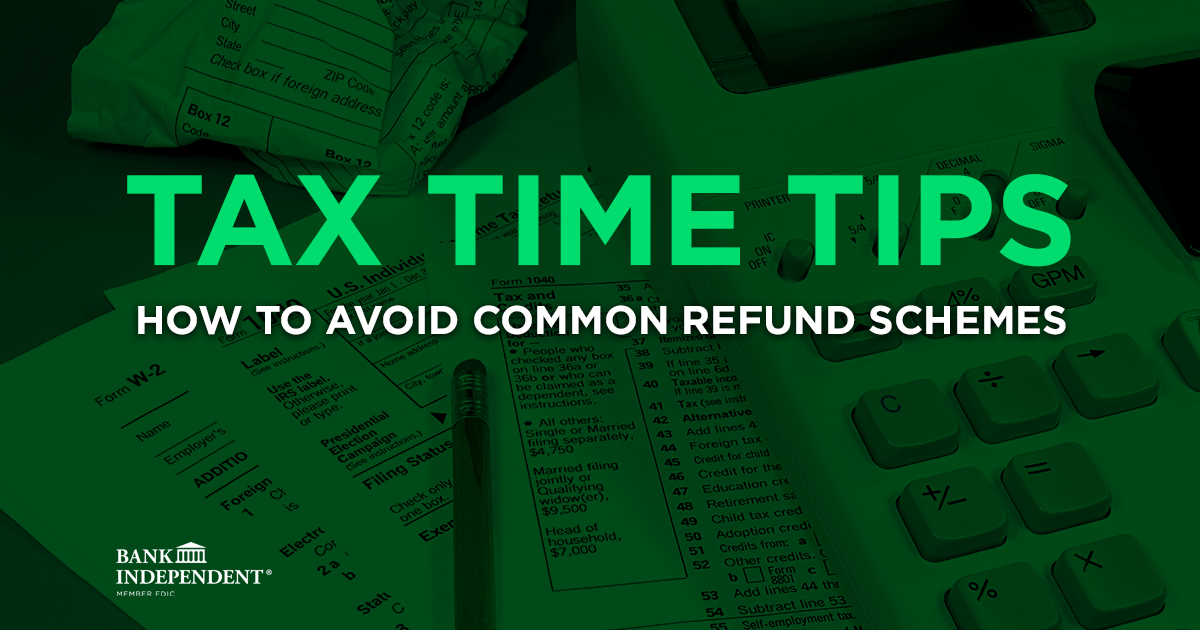
Tax season tends to stir up all kinds of emotions for us, some good, some bad, and some downright crazy. From the thrill of a possible tax refund to the dread of an audit, now's a time for us to focus on staying protected.
As if filing taxes weren't stressful enough, we must be on the lookout for common tax fraud or refund schemes. We could be vulnerable as our W-2s and tax returns with our personal information circulating over the internet and through the mail.
We want to make sure that we don't fall victim to any of these tax scams, so in this article, we'll cover some key tips on how to identify fraud and protect ourselves.
Common Schemes to Watch Out For
When it comes to tax fraud and refund schemes, you need to be vigilant, but knowing what to look for can help. The IRS warns taxpayers about the so-called phishing schemes that use emails, texts, phone calls, or social media messages in an attempt to steal taxpayers' personal information. These messages usually look like they come from an official source, such as the IRS or your employer. Watch out for requests asking you to update your account information by clicking on a link or providing your financial data.
Another type of scam involves stolen Social Security numbers being used to file false tax returns in order to get a refund. Thieves also use stolen Social Security numbers to establish lines of credit or fund accounts they have opened. Ensure you track your activity and regularly check your credit report for unauthorized charges.
Finally, be mindful of people who offer free money if you pay them a fee in advance - especially if that person has power of attorney over your finances. This type of scheme is often used to defraud unsuspecting taxpayers out of their hard-earned money.
Steps to Secure Your Return
The best course of action for avoiding tax return fraud is to protect yourself in the first place. Here are some steps you should take to secure your return and help decrease your chances of becoming a victim:
File Your Return Early
Filing your return as early as possible can significantly reduce your chance of getting scammed. For one, criminals may have a harder time stealing your return if it’s already filed, and two, you’ll get access to your refund quicker if you file early.
Don’t Share Your Information
Never give out your Social Security number or bank information to anyone who contacts you online or over the phone. Neither the IRS nor your bank will ever call you and ask for this type of data.
Don't Fall for Scams on Social Media Sites
Be especially cautious when using social media sites such as Facebook, Twitter, or Instagram. Unknown users tend to create fake profiles in order to lure unsuspecting taxpayers into disclosing personal information or falling for their fake offers.
Protect Your Computer and Network Use with Security Software
A reliable security software program can protect all the information stored on your computers and networks from cybercriminals. Choose from several options such as anti-virus software, malware protection, encryption, and firewalls that can assist in keeping your personal data safe from hackers.
Protecting Yourself From Phishing Scams
It's no secret that phishing scams are on the rise. Criminals use these schemes to buy, sell and trade stolen identities, and they can be incredibly aggressive during tax season. So how do you protect yourself from phishing scams?
Recognize Phishing Tactics
Scammers are using sophisticated tactics to trick you into giving them personal information like your social security number or bank account details. This can include creating emails that appear to be from a legitimate government agency or tax preparer or sending text messages with links to fake (and malicious) websites. Make sure you do your due diligence and recognize these red flags.
Verify Email Requests
If you receive an email with a request for personal information from someone purporting to be from the IRS. even if it looks real, take the time to verify it before responding. The IRS will never email taxpayers requesting detailed personal information or financial information like bank accounts and passwords. Verify any suspicious requests by calling the agency directly at their listed numbers or heading over to their website to read any news updates they may have released about fraud activity.
Tips on Detecting Suspicious Emails
Tax season is a busy time for scammers, they often use this opportunity to take advantage of unsuspecting taxpayers. As you file your taxes this year, be wary of any suspicious emails or texts. Here are a few tips on spotting these phishing attempts:
Unfamiliar Senders
It's easy to be taken in by offers of tax refunds or ones that contain urgent messages and requests. So, always check the sender's email address before clicking on any links or opening attachments. If the address looks suspicious, don't click - just delete it.
Grammar and Punctuation Errors
Beware of emails with typos, misspelled words, and poor grammar, this is usually a telltale sign that it’s not coming from a legitimate source. Scammers may also use generic salutations such as "Dear valued customer", instead of using your name.
Urgent Requests for Your Personal Information
Never divulge personal information like your Social Security number, bank account information, or any other confidential details in response to an email or text message, reputable organizations never request information this way. If in doubt about an unexpected message, contact your customer service representative directly before taking any additional action.
Report Any Suspected Fraud
If you are a Bank Independent customer, please call our Customer Service team at (256) 386-5000 or (877) 865-5050 or complete our online dispute form. Additionally, if the IRS denies your tax return because one has previously been filed under your name, alert the IRS Identity Protection Specialized Unit at 1-800-908-4490.
Bank Independent's cybersecurity team is deeply committed to protecting the personal and financial information entrusted to us by our customers--and not only during tax time. For more information on our identity protection practices, plus additional tips to protect your money from fraudsters, visit our identity protection page.
Overall, the tax season can be a stressful time for many people but taking steps to protect your personal information can go a long way in helping to avoid the consequences of a refund scheme. From filing taxes early to being cautious about giving out your Social Security number, it only takes a few minutes to protect your financial information. Stay alert and vigilant to help ensure a hassle-free tax season.

